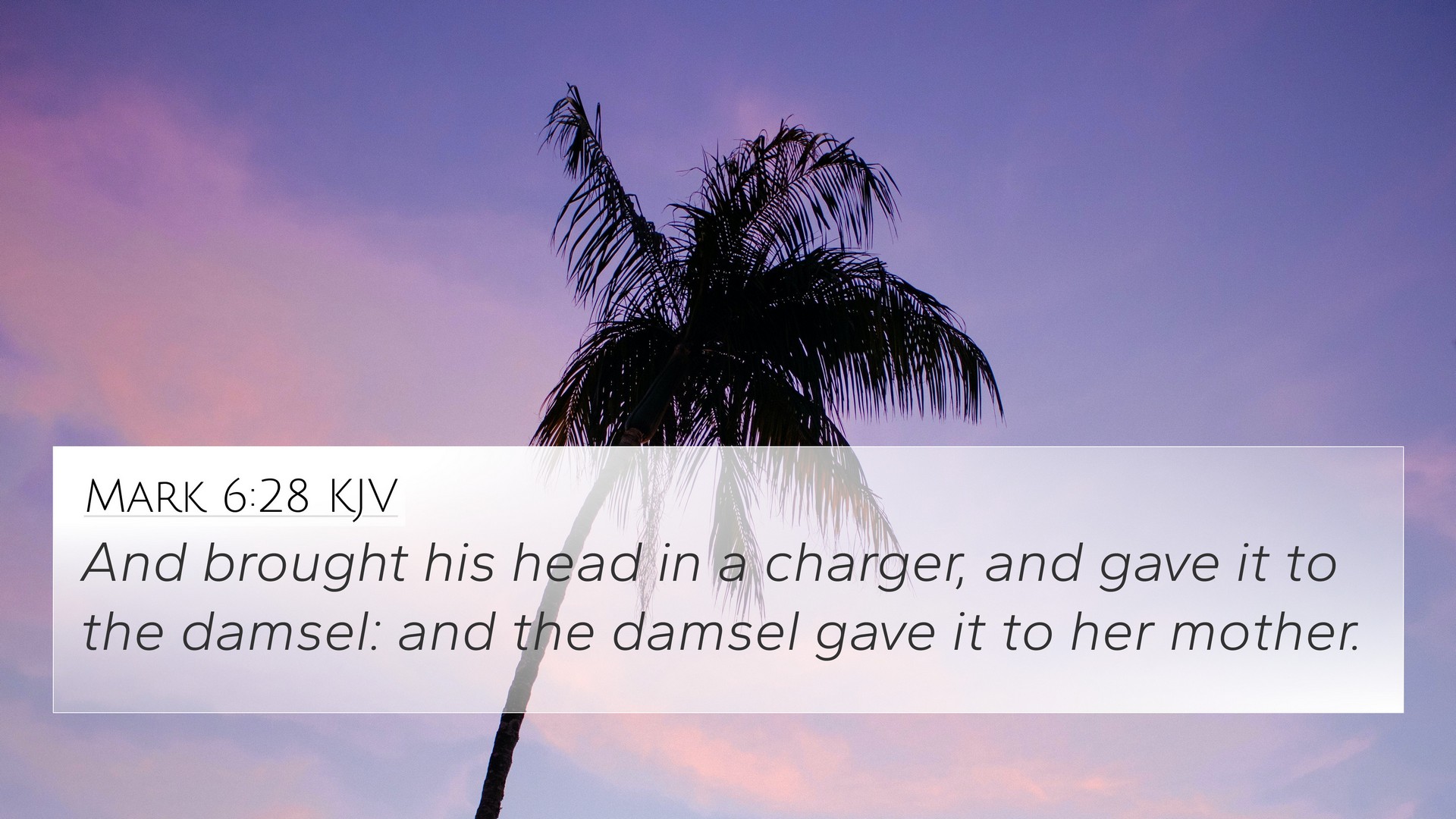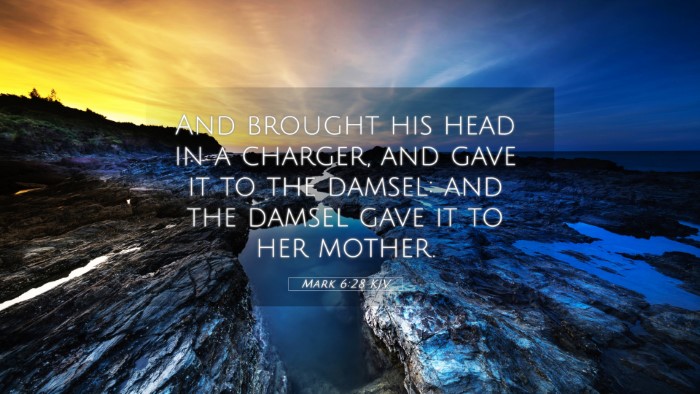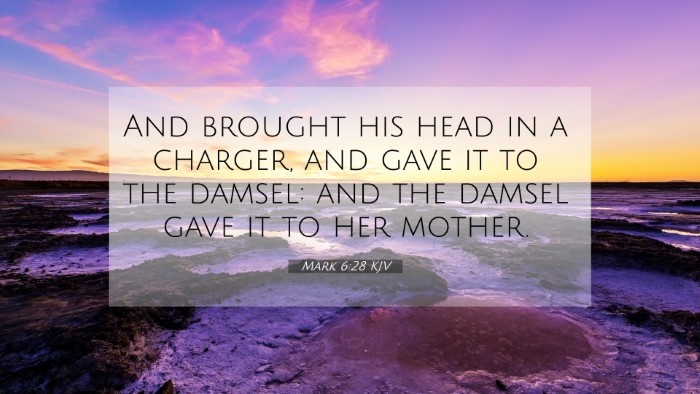Understanding Mark 6:28
Mark 6:28 states: "And brought his head in a charger, and gave it to the damsel: and the damsel gave it to her mother." This verse recounts a tragic moment in the narrative of John the Baptist's execution, emphasizing themes of betrayal, power, and the consequences of wickedness.
Contextual Overview
This verse occurs within a larger narrative that depicts the circumstances leading to the beheading of John the Baptist, instigated by Herodias, and serves to illustrate the morally corrupt nature of Herod's court.
Key Insights from Public Domain Commentaries
-
Matthew Henry: Henry reflects on the gravity of the incident, noting how the proud and vengeful intentions of Herodias led to the execution of John the Baptist, a man known for his righteousness. This act of taking John's head illustrates the extent of Herod's moral failings and his capitulation to the whims of others, particularly the daughter of Herodias.
-
Albert Barnes: Barnes emphasizes that the delivery of John's head was a significant act that not only served Herodias' personal vendetta but also marked a pivotal moment of moral decay within the leadership of Israel. His commentary draws attention to the implications of such tyranny and the tragic fate that befell a faithful servant of God.
-
Adam Clarke: Clarke elaborates on the historical context of this episode, providing insights into Herod’s character and fears. He notes how Herod's decision to execute John was influenced by his desire to maintain power and appease the crowd, thus revealing the tension between political ambition and moral integrity.
Thematic Connections to Other Bible Verses
Mark 6:28 has numerous thematic connections with other scriptures, providing a rich field for comparative Bible verse analysis. Here are key cross-references:
- Matthew 14:6-11: This passage parallels the account of John's beheading, providing further details on the events surrounding the banquet and the dance of Herodias’ daughter.
- Luke 3:19-20: In this passage, John’s rebuke of Herod leads to his imprisonment, foreshadowing the tragic conclusion outlined in Mark.
- James 1:15: This verse encapsulates the idea that desire leads to sin, which leads to death, mirroring the fatal results of Herod's sinful choices.
- Matthew 3:1-2: John’s original proclamation of repentance helps frame the narrative, contrasting his message of truth with Herod's deceptive indulgence.
- Jeremiah 26:20-23: The fate of the prophet Uriah, who was killed for speaking truth to power, resonates with John’s martyrdom.
- Acts 12:1-3: Herod's persecution of the early church echoes the tyranny displayed in Mark 6, demonstrating a continued pattern of oppression against God's messengers.
- Revelation 20:4: This verse speaks about martyrs for the faith being vindicated, providing hope for those who suffer for righteousness, as John did.
Implications of the Passage
Understanding Mark 6:28 is crucial for recognizing the battle between good and evil, faith and folly, and the often tragic outcomes of worldly power struggles. Each cross-referenced verse enriches the understanding of this narrative, emphasizing that God’s faithful servants are not immune to suffering due to the wickedness that pervades the world.
Tools for Bible Cross-Referencing
Studying this verse and its connections is enhanced through various tools and methods:
- Bible Concordance: Use a concordance to find verses related to "beheading," "John the Baptist," and "Herod," among others.
- Bible Cross-Reference Guide: Utilize guides that highlight thematic links and historical context.
- Cross-Reference Bible Study: Engage in structured Bible studies that identify narrative and thematic parallels.
Conclusion
Mark 6:28 serves as a solemn reminder of the perils faced by those who proclaim truth in a world often hostile to righteousness. Its connections with other biblical texts demonstrate the continuity of God's message throughout history and the ultimate hope for those who endure in faith.


